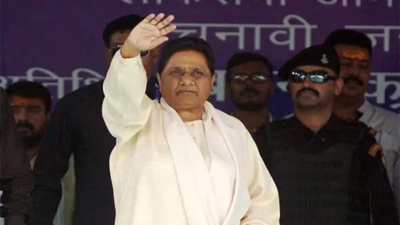
The Supreme Court's ruling, delivered this week, challenges existing quota policies by limiting the scope of affirmative action programs. The Court’s decision has sparked significant debate, as it restricts the extent to which state governments can implement quotas in educational institutions and public employment. Mayawati, a prominent advocate for SC/ST rights, asserts that this judgment could jeopardize decades of progress made in promoting social equity and access to opportunities for marginalized groups.
According to Mayawati, the ruling contradicts the fundamental principles of equality enshrined in the Constitution and disproportionately impacts the SC/ST communities. She has urged Parliament to amend the Constitution to ensure that the quota provisions remain robust and effective. This appeal marks a significant moment in Indian politics, as it directly challenges the judiciary's role in shaping affirmative action policies.
The demand for a Constitutional amendment is not unprecedented in India. Throughout the country’s history, there have been multiple instances where political leaders and activists have sought legal and legislative reforms to protect or expand affirmative action benefits. However, Mayawati’s call comes at a time of heightened scrutiny of judicial and legislative interactions, raising questions about the balance of power between different branches of government.
Mayawati’s stance has been met with varied responses. Supporters argue that her proposal is a necessary step to safeguard the interests of marginalized communities and prevent any rollback of benefits that have been hard-earned through years of struggle and advocacy. Critics, however, contend that such an amendment might set a precedent that could lead to further entanglements between the legislative and judicial branches, potentially destabilizing established legal norms.
In the broader context, this development reflects ongoing tensions within Indian politics regarding affirmative action policies. The debate often revolves around how best to address historical injustices while balancing the needs and rights of different segments of society. The Supreme Court's ruling is seen by some as a move towards greater meritocracy, while others view it as a threat to the social justice framework that has been integral to India's post-independence identity.
As the debate continues, the role of political leaders like Mayawati becomes crucial in shaping the future of affirmative action policies in India. The outcome of this legislative push could have significant implications for both the SC/ST communities and the broader socio-political landscape. The resolution of this issue will likely be watched closely by policymakers, activists, and the public alike, as it addresses fundamental questions about equality, justice, and the role of government in ensuring social welfare.
This situation highlights the dynamic interplay between judicial decisions and legislative action in shaping public policy. The coming weeks will be critical in determining whether Mayawati’s call for a Constitutional amendment will gain traction and what impact it might have on the broader landscape of affirmative action and social justice in India.
